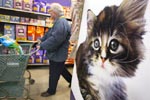SINGAPORE - China Aviation Oil Singapore (CAO), China's biggest jet fuel supplier, said it expected world oil prices to remain elevated throughout 2012 on sustained regional demand for air travel and transport in Asia.
Even the global economic slowdown will not undermine crude prices, CAO chairman Sun Li said in an interview with local broadcaster Channel NewsAsia on Tuesday, adding that the company expected the oil prices to be between $90 and $110 per barrel.
Sun is also the president of China National Aviation Fuel Group Corporation (CNAF), a state-owned air transportation logistics service provider and the majority shareholder in CAO.
The demand in Asia for air travel and transport will counter global economic uncertainty to support prices in crude oil next year, he said.
"Compared to the other economic players, I feel that the impact of the financial crisis is lesser. Generally, China's economic developments in these recent years are faster. The aviation industry for example, only moderated partially and has stayed resilient after the financial crisis occurred," he said.
China's jet fuel consumption should remain resilient next year and grow at the same pace of 9.5 percent, he said.
The company has set a target to raise the contribution of its non-China markets to 50 percent by 2014 from the current 30 percent.
CAO currently trades around 7.17 million tons of jet fuel per year. China makes up about 70 percent of its business, with the rest coming mainly from the Asia Pacific, Europe and the United States and the Middle East.
CAO said it has the right systems in place to achieve that. It has also been gradually restructuring itself over the past few years to diversify into other segments.
The company on Tuesday marked its 10th anniversary of its listing on the Singapore Exchange and it has since come a long way since it was involved in a financial scandal in 2004 when it manipulated its accounts to high losses in derivatives trading of about $550 million.
CAO said it expects year-on-year growth in earnings this year after a 24 percent increase in the third quarter, but warned that it could be more complicated and uncertain next year.








